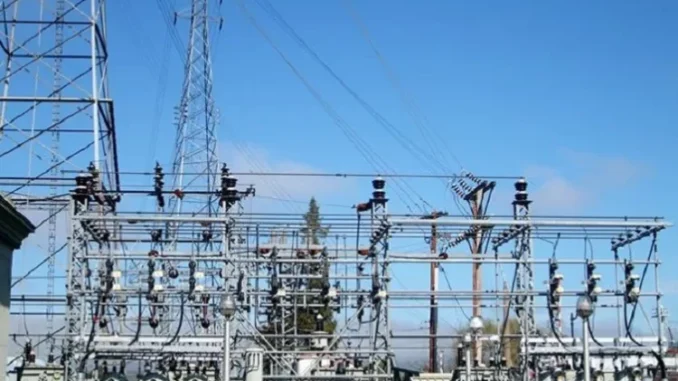
The National grid may soon get a boost with the addition of 40 megawatts from the Kashimbilla hydropower plant which is expected to facilitate the development of small and medium enterprises (SMEs) in Taraba and Benue States.
Adebayo Adelabu, the minister of power who spoke during the inspection of the project noted that the surrounding communities in Taraba state especially those displaced by the Dam construction are already benefitting from the 10 megawatts currently being distributed directly from the 40 megawatts capacity plant.
This is as the Transmission Company of Nigeria (TCN) expressed concerns over a gradual drop in power generation into the grid saying it is due to low gas supply to the thermal generating companies,
The agency’s general manager, Public Affairs, Ndidi Mbah, made this in a statement on Wednesday.

Adelabu said that the four turbines installed in Kashimbilla power plant are working well and generating 100 percent of the installed capacity.
“The power plant has an installed capacity of 40 megawatts but only 10 megawatts is presently being evacuated. Kashimbilla Power plant with its state-of-the-art technology which includes automated tracking and monitoring system (SCADA), is working effectively,” he said in a statement issued by his special adviser on communication Bolaji Tunji.
“This inspection visit is to ensure accelerated completion of the facilities to ensure the remaining 30 megawatts are evacuated. We have begun the process and we have the assurance of the contractors that this would be completed within the next six months to one year.
“The moment we are done with the evacuation infrastructure the stranded 30 megawatts will be evacuated, the entire four turbines will be working at full capacity of 10 megawatts each to make 40 megawatts and this will increase the generation capacity that will be evacuated into the national grid,” he said.
Stressing that the project was in line with President Tinubu’s mandate of ensuring adequate access to electricity, Adelabu expressed displeasure over the stranded 30 megawatts adding that it was not economically good for the country, hence the need to ensure the accelerated completion of the evacuation infrastructure.
He maintained that more efforts were ongoing towards improving power generating capacity across the power plants.
“We will also work on strengthening and expanding the capacity of the transmission grid so that as more power is generated, they can actually be wheeled to the grid.
We are working on the infrastructure so that the DISCOs have enough to distribute to electricity consumers.”
In his remarks, the managing director of Transmission Company of Nigeria (TCN), Sule Ahmed Abdulazeez, said that efforts were on top gear to make sure that the 132KV transmission line from Yandev to Apir in Markudi, is completed.
“By the time that transmission line is ready, we can evacuate all the power from the Kashimbilla plant”, he said.
Meanwhile, Mbah in the statement said that this has impacted the quantum of bulk power available on the transmission grid for onward transmission to the distribution load centres nationwide.
LEADERSHIP checks reveal that at as 2pm today, power generation on the national grid was 2,386.90 megawatts
The Nigerian Electricity Supply Industry (NESI) currently operates the on-grid generation of 80 per cent thermal and 20 per cent hydro power plants
The statement reads, ‘’The Transmission Company of Nigeria TCN hereby announces that there has been a gradual decrease in available generation into the grid due to gas constraints to the thermal generating companies, which has impacted the quantum of bulk power available on the transmission grid for onward transmission to the distribution load centres nationwide.
‘’TCN is doing everything possible in collaboration with stakeholders in the power sector to ensure that it continues to keep the grid intact in spite of the current low power generated into the system.’’

TCN working to ensure gradual increase in electricity supply
While it noted that the power distributed to the distribution load centres has reduced and as such can only transmit what is generated, the TCN assured of its commitment to ensuring increase in electricity supply to load centres as gas improves.
It added, ‘’Consequently, upon the current load on the grid, load distributed to the distribution load centres has also reduced, as TCN can only transmit what is generated.
‘’TCN is committed to ensuring a gradual increase in electricity supply to load centres as gas improves to power available thermal plants.
‘’Please bear with us as we continue to work with the stakeholders in the value chain to ensure that supply through distribution companies.’’
Recall that Eko Electricity Distribution Company (EKEDC) has earlier notified its customers inadequate gas supply was hampering its efforts at supplying electricity to its numerous customers.
The DisCo, in a notification on its official X Handle, disclosed that the present reduction in power supply across its network was due to gas shortages and other related issues arising from the generating companies.
‘‘We sincerely apologise for the inconvenience this has caused even as we work with our partners for speedy resolution,’’ it said.

Be the first to comment